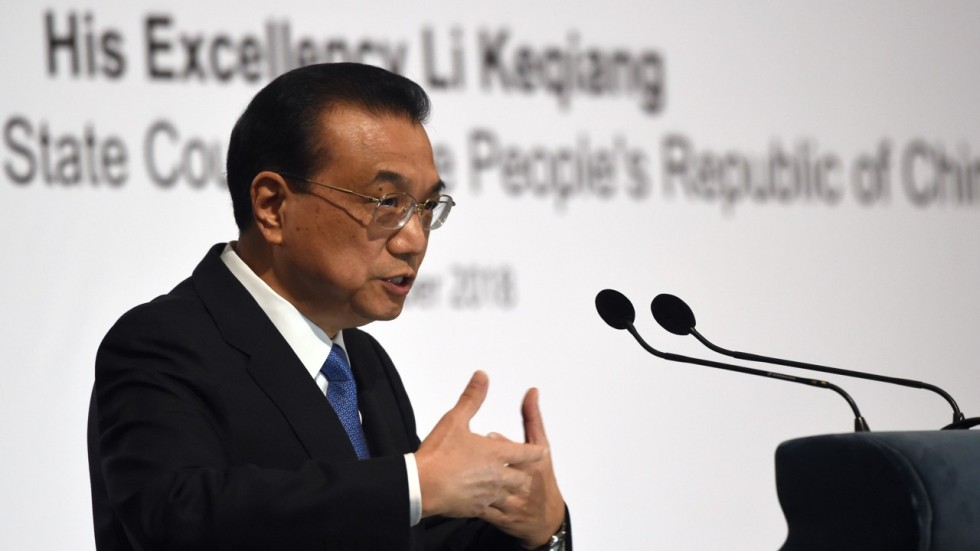Catherine Wong
 Premier Li Keqiang made the commitment on Tuesday in Singapore before attending the annual summit of the Association of Southeast Asian Nations (Asean).
Premier Li Keqiang made the commitment on Tuesday in Singapore before attending the annual summit of the Association of Southeast Asian Nations (Asean).
Li said a peaceful and stable international environment was crucial for Beijing to improve ties and reach free trade deals with its neighbours, adding that China hoped to conclude negotiations for a comprehensive regional economic partnership trade deal next year.
The premier also said that a code of conduct between China and other claimant countries – which China hoped would be successfully negotiated in the next three years – would be conducive to maintaining and sustaining peace in the region.
“As the development of the South China Sea has stabilised now, we hope to make use of this opportunity to push for concrete progress of the code,” he said.
“China and Asean countries will benefit in that process, it will also be conducive to free trade and go on to serve the interests of other parties.”
In August, Asean and China agreed on a draft code that will lay the foundations for conduct in the disputed waters. China’s military build-up in the South China Sea will be high on Asean’s agenda.
The Asean summit takes place as tensions between China and the United States run high and as both jockey for influence in the region. Locked in a trade war with the United States, China is aiming to reach trade deals with the bloc.
American and Chinese vessels have also had near collisions in the South China Sea.
US National Security Adviser John Bolton said on Tuesday that the US objected to China’s unilateral military steps in the disputed waters.
Calls for a binding code of conduct surfaced in 1995 when China occupied Mischief Reef, a maritime feature claimed by the Philippines. China did not agree to start talks until 1999, and subsequent negotiations led to a non-binding declaration of conduct in 2002.
Collin Koh, a maritime security expert at Nanyang Technological University in Singapore, said there was still a long way to go before the code of conduct was concluded as some Asean states were debating whether it should be legally binding.
“And it’ll appear that some, if not all, Asean member states have come to moderate their own expectations of the code,” he said. “The single draft negotiating text contains many proposed provisions, and since the talks will involve so many players, it’ll surely take time. In fact, I will not be surprised if they eventually take more than three years.”
No comments:
Post a Comment